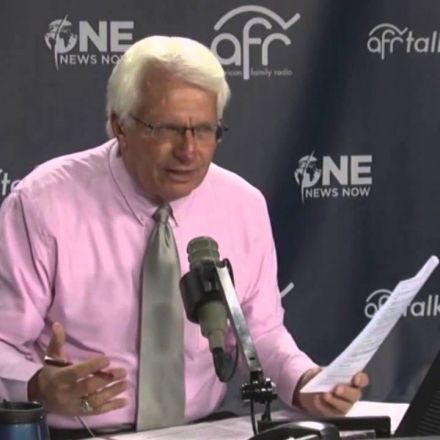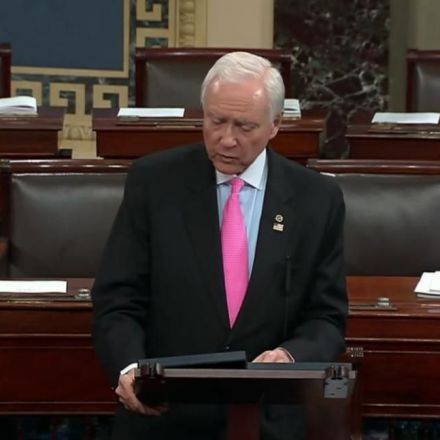

10 years ago
18
Ten awesome things about being Christian in the United States
No doubt there are many more unnoticed privileges enjoyed solely by members of the majority faith. Feel free to add those in the comments.
Continue Reading-
30+ Examples of Christian Privilege
Following is a list of privileges granted to people in the U.S. (and many western nations) for being Christian.



























Join the Discussion
I lived for a few months in such an area (well, South New-Brunswick but it's as bible belt-y) and heard things like "The government wants to outlaw christianity/saying merry christmas", "We should show **The passion of the Christ* to all children, it's so beautiful", and "You really ought to convert to christianity, you could order your wife around!" (only said to me by women...).
The urge to yell "are you all fucking crazy!" is strong. After three months, I was really glad to be out of there. I prefer to live where people who display strong piety get the "Are you fucking retarded?" look.
On reddit I'm currently deconstructing the privilege that one Christian doesn't think exists. He's trying really hard to make the case that Christianity is under attack in the US and that the First Amendment doesn't intend a "wall of separation" between church and state.
Like the rest, the status of Christianity as a persecuted religion is an unsubstantiated point of faith.
A lot of public opinions are faith based, frequently cherry-picked from partisan sources that are less interested in informing the public than influencing us. Gone are the days when journalism actually meant reporting the news and analyzing it, now it's primarily stenography about who said what to whom. So when we do actually have evidence-based conclusions it's dismissed as mere propaganda.
Joseph Goebbels would be so proud.
You are probably in the only western country were your answer to the question "How was your weekend" in a job interview can make you lose the job. While we also have our fair share of religious nutjobs in Europe the audacity, number and influence of their American counterparts makes them invisible in comparison.
I'm amused that simply having the audacity to point out that Christian privilege still exists in the US provoked a downvote here. ;)
I think in all honesty it's just a different culture and they don't get the more secular parts of the country. Now, I'm essentially a traditional Christian (raised Lutheran, but believe that Othodoxy is the real church (not converted yet)) and the way I was raised was that Christianity applies to you, and the denominational rules only applied to members. I'm not oppressed because shops sell nonfish meat on Friday, or if I can't make the world stop on Sunday. Non oppression means you don't stop me from doing what my faith tells me to.
The south is more of a "if I can't be loud and proud and I have to see stuff I don't like, that's oppression," kind of culture. They're used to cultural affirmation of their faith. They're used to amens and applause for quoting the bible. I'll quote the bible, but I'm open to the idea that this doesn't win the argument every time. Besides, the bible came with Tradition, and I'm not gonna win by citing a saint. Live and let live.
I actually believe in stopping you from doing what your faith tells you to do in every single case where it conflicts with the rule of law without a single exception granted in the name of any belief.
However, in every single case where your actions don't conflict with the rule of law, I believe it would be wrong to stop you.
I should have said within reason. Without reason, it's just an excuse. I often wonder whether the religious bakers follow the other rules of their faith (no work on Sunday, tithing, and so on). I'd be more sympathetic if they were, but it seems like it's usually pick and choose on religious workplaces. And usually in the political realm, not other things.
I really don't think it's possible to make legal exceptions within reason. If we can't grant it to everyone, then we can't grant it to you.
There's already plenty of freedom we all enjoy, if the tenets of your faith are reasonable, they will fit in there.
Define reasonable.
That's sort of a problem. Is it reasonable to make laws that allow bosses to fire you for attending a church service? Is it reasonable to require all stores to carry alcohol and pork? See, when it's a religion you don't practice, what seems extraordinary to you (like being allowed to wear religious clothing, or not do things that violate your faith) are ordinary to people who practice other religions. It's normal for Jews to have two kitchens to avoid contamination of meat with milk. It's normal for a Muslim to pray five times a day. By allowing things that are common, but not allowing for the uncommon, you end up enforcing the majority faith. Our weekend coincides with Jewish and Christian worship, not with Mosque worship.
Sure. The law should be completely blind to your faith. It should neither target you nor protect you in way it wouldn't other citizens.
Nope.
No, but not for religious reason. But if there was a legit reason to force stores to carry alcohol and pork, then religion shouldn't shield them.
We had a debate about that recently. I don't think it's a big deal to restrict religious clothing for people in the field of duty.
It's up to them to find a residence / job that allows for that.
Where I live, the majority is fast becoming faithless.
Their faith, their problem.
But when you say "blind to faith" that does privilege the majority religion. Even if you're not personally religious, you were raised in a nominally Protestant Christian culture, with those assumptions in the background where you don't see them.
Take for example the religious clothing. I bet when you were considering that, you weren't considering things Christians wear all the time. Like crosses, for example. Most catholic and orthodox wear crosses, but they're culturally normal, you never notice them because they're everywhere. Some baptist women won't wear pants, but since women in skirts are normal, that wouldn't be something a private company would ban very often. That changes when it's a different religion. Hijabs and Sikh turbans are not normal to us, and would probably not fit into a cultural image of a professional. So if you say "not a big deal to restrict religious clothing " it's not a big deal to most of us in America because most of us are culturally Christian and Christian customs are grandfathered in.
In fact almost all western Christian practices are grandfathered in. Our weekend (when most are off work) just so happens to coincide with the Jewish Sabbath and Christian Sunday. Christmas (on the western calendar anyway) is a major holiday. In short, for most Christians it doesn't even come up. You're already off on those days, so your not at risk of getting fired over them. If you're Muslim, worship is on Friday, and you have to get permission. And eid too, because funny Muslim holidays aren't days that we recognize. At every step saying "just adapt to us" gives them a disadvantage-- they have to ask for what you're handed. And I think it's unfair to state that the default is good for everyone when what it is is grandfathered Christian practice and everyone else works around it.
You're making big assumptions about the culture I was raised in.
We notice them because there's a stigma attached to them. If you wear it, you're labeled as one of "those". You can't generalize for all of the western world.
Getting fired for asking for a more convenient schedule?
Because you are living in a world OP posted about. Not all of the western world is mostly Christian and our issues with religion are thus different.
America has a largely nominal Christian and Protestant culture. The cultural assumptions are from western Protestant Christian tradition, as opposed to Buddhist or Hindu or Muslim cultural assumptions.
We don't worry about whether or not pork or beef is in foods because Christian tradition has no real food taboos. In fact there was a bit of a problem when McDonald's expanded into India and never told the Indians that the fries contained beef. American executives didn't think it was a big deal because Christians eat beef, it was a big deal to the Indians because Hindus don't eat beef. We don't really (outside of crosses) have required dress for Christians and this does cause problems when Muslims have to sue to wear hijabs and others to wear turbans. People who make up uniform codes don't really think about Muslims or Sikhs.
That's what I mean by Christian cultural assumptions. Christian scripture, clothing styles, food laws, and holidays are widely known and widely practiced even among those who are not Christian themselves. Most Americans and Brits could probably quote major bible verses (John 3:16, for example) without trouble, but would not know any verses in the Quran off by heart. Most could give the religious background of Easter but not Diwali or eid al Iftar. We know when Jesus was born but not Buddha. You don't have to practice Christianity to know these things because your culture (I'm assuming you're American) is nominally Protestant Christianity
And I believe that those who do ought to be responsible for those. Of course, it's nice if people put warning about pork and all but other people don't have responsibilities for your religious rules.
I actually think this is a big issue even in North America because it's not something you can reasonably expect in fries. There are plenty of vegetarians who would be pissed to learn they ate beef.
You might not be we have a taboo on crosses.
As in everyday life or or when it conflicts with wearing a uniform? Because in the latter, it's your responsibility to pick a job that agrees with your religious choices, not the other way around. Same with Christians who oppose contraception.
I said earlier I wasn't American. I'm Québécois. The vast majority of us couldn't quote any major verse of the Bible and know the alledged birth of Jesus only because of our calendar. I agree that the timing of the holidays is convenient for Christians because of our former Christian history. Good for them, but I don't think anyone can hold any expectation to have his or her relgion catered to. In fact, I'd be in favour of moving the easter holidays to a fixed date every year.
I don't think anyone has the right to expect anyone to be knowledgeable about his religion or to receive special favour because of it. Good for you if individuals or corporations or anyone do. But the government should not, ever. Which is basically the idea behind the laïcité doctrine we follow (like secularism but stricter).
I think some clarification of this is in order. Some laws may require people to violate their religious beliefs, in which case I think they need to be judged on a case-by-case basis. If your religious beliefs say that modern medicine is bad then an exception should be made to allow you to opt out and issue instructions that you are not to receive medical intervention when you're not conscious to be able to object. However, that exception should not extend to children who have no ability or right to choose for themselves. The law should protect them until they're old enough to be considered a legal adult and capable of making that choice.
Where religious beliefs interfere with someone else's rights is where religious freedom must end.
Those are called living wills. It's a perfectly sensible law that should apply to everyone. You might issue some instructions due to your beliefs like you might use your freedom of assembly due to your beliefs. But in both cases, the law was not made to give a loophole to people with certain beliefs.
If we can suspend the laws at will because people don't believe in them, then they aren't sound laws to begin with and we should repeal them.